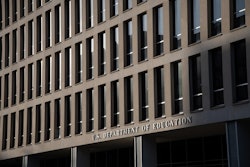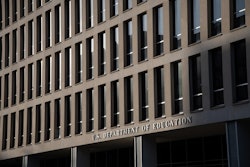 Skyline College, a community college in California
Skyline College, a community college in California
As Blen struggled to balance work and school, she said these courses grew discouraging semester after semester, feeling more like a trap than a ladder. In 2012, Blen left Contra Costa, still without her degree.
“I didn’t understand why I was stuck in remedial courses, but another friend wasn’t when we grew up together, taking the same high school classes and getting the same grades,” said Blen, who is a Latinx first-generation student. “Then I got pregnant and became a statistic: a young Latina with a child and no college degree. As a young person in the Bay Area trying to raise a kid, I couldn’t understand what was happening to me.”
Locked out of job opportunities while raising a family, Blen in 2017 re-enrolled in the community college system at the City College of San Francisco (CCSF). Again, she was put into remedial courses, but this time Blen pushed back.
Blen got involved in Students Making a Change (SMAC), a student-led advocacy group at CCSF calling for remedial education reform. Through SMAC, Blen found out about a state law called Assembly Bill 705 (AB 705) that passed in 2017, the same year she started at CCSF.
AB 705 outlaws community colleges in the state from requiring students to take remedial English or math courses without considering their high school GPA and coursework as well as determining that these students are “highly unlikely to succeed” in transfer-level, credit-bearing courses.
Before AB 705, about 80% of California’s incoming community college students started out in remedial courses. Their transfer and degree completion rates were roughly half that of students who began in transfer-level courses. Black and Latinx students like Blen were disproportionately enrolled in remedial courses as well.















